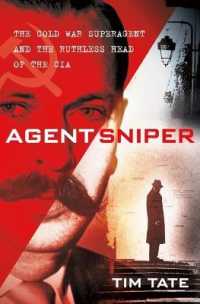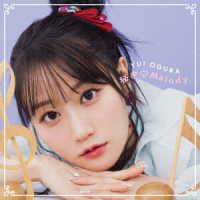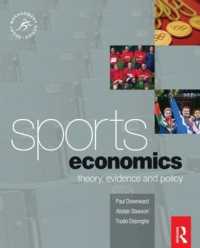- ホーム
- > 洋書
- > ドイツ書
- > Humanities, Arts & Music
- > Music
Description
The Undine Sonata for flute and piano is one of the few works by the composer Carl Reinecke which is regularly performed even today, and is at the same time one of the few Romantic repertoire pieces for transverse flute. Although not obviously programme music at first glance, and sometimes even questioned as such by contemporaries, the work nevertheless falls back on the Undine subject which was a popular opera theme in the 19th century. The Wiener Urtext Edition now presents a new publication of the work which closely follows the text of the original edition (unfortunately, manuscript sources are not extant). The notes on interpretation follow the tracks of the extra-musical programme, trying to bring the work and its interpretative understanding into close connection with the Undine subject.Instrumentation:flute and pianoop. 167 Allegro - Allegretto vivace - Più lento, quasi Andante - Allegretto vivace - Andante tranquillo - Molto vivace - Allegro molto agitato ed appassionato, quasi Presto - Un poco più tranquillo - Più lento Irmlind Capelle studierte Schulmusik, Musikwissenschaft, Germanistik und Ev. Theologie in Berlin und Detmold. Sie promovierte über Albert Lortzing und ist Herausgeberin der Lortzing-Briefe im Bärenreiter Verlag, Kassel. Sie ist freiberuflich tätig (u.a. Lehraufträge für Musikwissenschaft an der Universität Paderborn), Vorsitzende der Internationalen Carl-Maria-von-Weber-Gesellschaft e.V., und außerdem in der Albert Lortzing Gesellschaft e.V. Vorsitzende des Wissenschaftlichen Beirats.


![[Sinking of Big Country : Memorandum to China]](../images/goods/../parts/goods-list/no-phooto.jpg)




